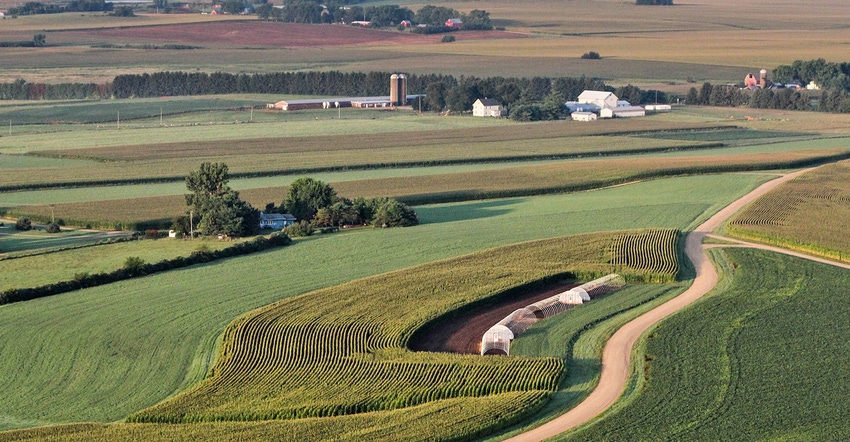May 3, 2017

Our son started crop farming with us in 2008 when crop prices were high. He bought some machinery, and we bought 200 acres of land down the road. We owned 450 acres and rented an additional 600 acres. This past winter, our son decided he could make more money working a full-time job, so he sold his equipment and quit farming. We decided to sell 100 acres of land from down the road to a neighbor to pay off our debt. My wife and I let the rented land go, but we are farming the 350 acres we own this year. We are trying to decide if we would be better off selling our equipment this fall and renting the land to the neighbor or retiring, selling the whole farm and buying a house in town. We will both turn 65 this year. Please advise.
Hodorff: Hopefully you were in contact with your financial adviser as you sold land. As you make decisions on long-term goals, it is in your best interest to seek some financial advice. You have already made some major decisions that affect your future. I would not be selling equipment. You have already depreciated some of the equipment. You need to seek financial advice to ensure you have a financially stable retirement. Making decisions without all the facts is risky. You have a long time to enjoy all of your financial wealth.
Miller: Visit with your tax adviser to understand the expected ordinary and capital gains tax implications of selling crops, equipment and land. Calculate them separately and evaluate the appropriate timing for each of the steps. You may also want to visit with a financial adviser to complete a personal financial plan to understand the investments, income and living expenses to aid you in making an informed decision as to whether to sell the land or rent it out and not incur capital gains tax by selling it. If you’re going to evaluate buying a place in town, you may want to consider a continuum of care facility that has independent, assisted- and skilled-care options. Independent living could be in an apartment or townhouse concept, but the facility could also accommodate additional needs over the next several decades should any health challenges occur. Good luck exploring your farm transition options.
Wantoch: I’m sure that was a difficult decision for your son to make, as well as your decision to reduce the number of crop acres in the operation. It’s hard to say what crop commodity prices will do this year and what the value of farmland will be. I would suggest that you review what your cash flow needs will be if you were to retire. Will the income from your rented farmland and Social Security (if you choose to apply for retirement benefits) be enough to cover your expenses? Try not to rely on the income from the sale of your farm equipment, since this will only be a short-term source of funds. If you find that you may struggle to pay all of your bills after you retire, you might want to consider selling your farmland or your whole farm. Discuss these options with your family to see if they might have an interest in purchasing the land and keeping it within the family.
Agrivision panel: Doug Hodorff, Fond du Lac County dairy farmer; Sam Miller, managing director, group head agricultural banking BMO Harris Bank; and Katie Wantoch, Dunn County Extension agricultural agent specializing in economic development. If you have questions that you would like the panel to answer, send them to: Wisconsin Agriculturist, P.O. Box 236, Brandon, WI 53919 or email them to [email protected].
You May Also Like




